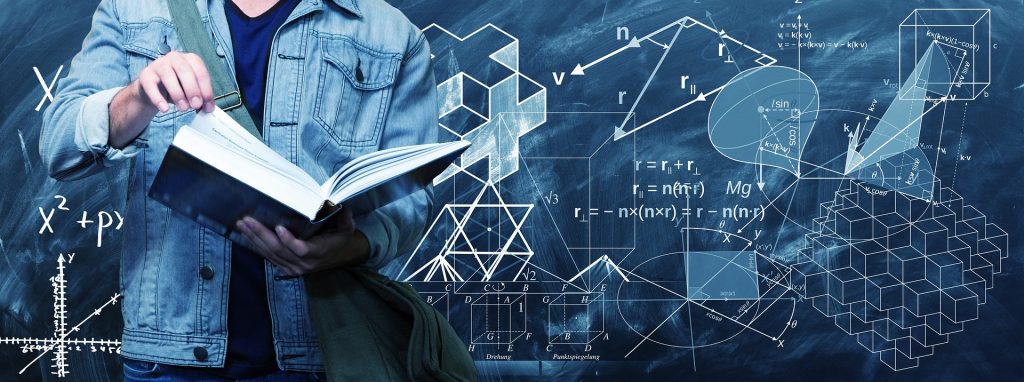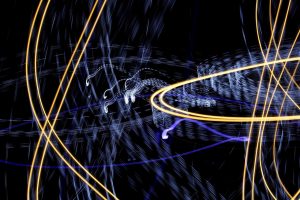
Mathematics is not a careful march down a well-cleared highway, but a journey into a strange wilderness, where the explorers often get lost. Rigor should be a signal to the historians that the maps have been made, and the real explorers have gone elsewhere.
— W.S. Anglin, Mathematics author

A Playful Math Carnival considering the random, the unexpected and the outliers.
Normally, when we think about math, we think about the definite, the absolutes and the precise! But can we do math with the unlikely, the undefined and the unexpected?
In this carnival we are going to have fun playing with estimates, randoms and approximates! If you have always thought math is about right and wrong, yes and no, be prepared to be stretched and amazed at the fun ways math can be played with!
But before we dive into the unexpected, we need to consider the number of this carnival, 165!

Some random facts containing 165
- To count from 1 to 165 would take you about twenty-two seconds.
- A cube with a volume of 165 cubic centimeters would be 55cm tall.
- The factors of 165 are 1, 3, 5, 11, 15, 33, 55, 165.
- The planet Neptune takes 165 earth years to orbit the sun.
- There are 165 Amsterdam canals that combine for a length of over 100 kilometers. The Canal Ring became part of the UNESCO World Heritage list in 2010.
- The Blériot 165 was a French four-engine biplane airliner of the early 1920s.

If you would like to jump straight to the recent math blog posts gathered from all around the web, you can leap straight to Recent Random Playful Math Blog Posts. Otherwise, grab a cuppa and come and explore the random, the unexpected and the outliers with me.
Table of Contents
Fuzzy Logic

Our heart is more like a chemical computer that uses fuzzy logic to analyze information that can’t be easily defined in zeros and ones.
Naveen Jain
Fuzzy Logic is a relatively new mathematical field, presented in a paper by Lotfi A. Zadeh in 1965… (Ohhhh I just noticed remove the 9 and you get 165). Traditional Logic deals with absolutes, True and False. Fuzzy Logic allows for degrees of meaning, where True is 1 and False is 0, but there can be a degree of meaning between 0 and 1. Because real life situations are rarely black and white, fuzzy logic allows for mathematical processes to analyze relevant data and solve problems by generating the best outcome according to the information given. According to Global Tech Council, real life applications of Fuzzy logic include:
- controlling the altitude of aircraft, satellites, and spaceships.
- monitoring and controlling the traffic and speed in automotive systems.
- Large companies using it for personal evaluation and decision making support systems.
- The chemical industry, for processes like controlling the pH.
- Technologies like Natural language processing and Artificial Intelligence, can use Fuzzy Logic to enhance the capabilities of systems.
- Automate vehicle control.
Kiddle attempts to explain Fuzzy Logic to kids in their article – Fuzzy Logic Facts for Kids.
An article by Sayantini on Edureka titled What is Fuzzy Logic in AI and what are its applications? would be a great place for your kids to learn more about the subject to springboard their own Fuzzy Logic project!
Mathworks has an article titled What is Fuzzy Logic? Which might be helpful for those of you who have kids who love computer programming.
How Rice Cookers Work by How Stuff Works give us an idea of where fuzzy math can be found in everyday life.
Probability

From principles is derived probability, but truth or certainty is obtained only from facts.
Tom Stoppard
Not all events are predictable. We can still do math however, with the likely outcome. Giving a value to an event ranging from impossible (0) to certain (1), we get the probability of an outcome.
Statology gives us some real life examples of the use of probability, ranging from politics and health insurance to natural disasters. You can read their post ’10 Examples of Using Probability in Real Life’ HERE.
Transum has a fantastic range of lesson starters, teacher resources and online activity links on their Probability Page.
Vinculum Investigations are great investigations for secondary kids to chew on. Download and print their Math Treats – Games of Chance and Skills sheet for your children’s math journal.
Estimation

It is actually good fun to do estimating because it keeps your mind active. As you walk around see how good you are at estimating answers before they come up.
Mathisfun.com
Estimation is skill that helps us succeed in everyday life. From estimating how long it will take you to drive to the doctors surgery, or how much your groceries are going cost this week, we use estimation daily. Helping children develop this skill, gives them an ability to see the ‘reasonableness’ of their answers and gives them an edge if their future job includes quoting or estimating costs for projects. Try some of these activities to include a daily dose of estimation:
Estimation 180 is a series of daily visual prompts to build estimation skill in your students.
MummaPappaBubba gives us ideas for estimation jars for preschoolers, incorporating the book ‘ISH…’ by Peter Reynolds.
I just recently stumbled on the Mathematics Shed. What a treasury of resources! Their Estimation Shed page is full of amazing pictures of really large numbers of random things, perfect for estimation discussions!
Randomness

The world, when you look at it, it just can’t be random. I mean, it’s so different than the vast emptiness that is everything else, and even all the other planets we’ve seen, at least in our solar system, none of them even remotely resemble the precious life-giving nature of our own planet.
Chris Hadfield
Can any event be truly random? A random event, by definition, is unpredictable, without a pattern, chosen by chance rather than plan. In our universe it seems that we can witness randomness, however is that because we don’t understand the process we can’t see or measure? An article by Stormblaze, Is There Truly Such A Thing As A Random Event?, tries to solve this mystery and concludes –
“Most of the things in the world may look random, but is actually something that we can predicted. This is due to human ignorance. The world is a weird and wonderful place. Sometimes we need to just lay back and look at the wonders of the world“
So, as we ‘lay back and look at the wonders of the world’ let’s have fun and play with random math.
NZMaths gives us a complete lesson plans exploring randomness in An Investigation of Random Processes.
PBS learning has an online game called Beat the Odds. A game to calculate the probability of random events.
If you are interested in machine learning and AI, Simplilearn blogs about Random Forest Algorithm and Towards Data Science has a post on Understanding Random Forest – Understanding the algorithm and why it is so effective.
Outliers

“The inability to predict outliers implies the inability to predict the course of history.”
Nassim Nicholas Taleb
The Outliers are the values that lie outside the overall pattern of distribution. Being able to recognise patterns is one of the fundamentals of mathematics, once the pattern is recognised the outliers are able to be spotted.
Dan Finkel from Math for Love has released his new book Pattern Breakers.
Wolfram Math gives a great explanation of math with some visual help in his post Outlier.
Mr Martinez’s Virtual Math Classroom has a lesson on Outliers with links to videos and worksheets.
The Unexpected

If you do not expect the unexpected you will not find it, for it is not to be reached by search or trail.
Heraclitus
Is there a place for the unexpected in math? When we are working through arithmetic problems and we come up with an unexpected answer, it signals to us that we need to re-look at our working. But the unexpected can also be places where we didn’t expect to encounter math at all! As our eyes open to the world around us, we can be surprised at finding math in unexpected places.
The Aucturial Foundation has a whole range of lessons on their Expect the Unexpected page.
Evan Zodl introduces us to the Unexpected Math of Origami in the TEDtalk.
And you can explore math in unexpected place with out Math Pockets – Math All Around Me.

Recent Random Playful Math Blog Posts
- By far the most exciting news in the math world is the discovery of what is being called The Hat, an aperiodic monotile, a shape which can tessellate but never repeat. New Atlas has a post all about it HERE.
- Math for Love also posts about this new discovery in Aperiodical Monotiles Exist!
- Early Math Counts gives us an idea for a math activity with our youngest mathematicians in Geometry With Robots!
- Yummy Math encourages us to bring some art into our math with the Wheel of Theodorus.
- Create a Fibonacci Flower Garden Collage with Karyn at Family Math Night.
- Henri’s Math Education Blog has a new post discussing Convex Tangram Polygons.
- If you love history, you’ll love 10 Historical Moments that Happened Because of Math, by Math Rider. I’ll be encouraging my children to add some of these to their math journals!
- The Case of the Impossible Triangles, by Jenna Laib, gives us an insight how you can intrigue your students with a math class investigation of polygons.
- Denise Gaskin gives us Math Game Monday and Thinking Thursday
You can access past Playful Math Carnivals HERE. The last carnival was hosted by Leap of Dave, if you haven’t had a chance to check it out yet, make sure you go and have a look! Next time Math Mama Writes will give us Carnival #166. If you would like to host a Playful Math Education Carnival, Denise is looking for volunteers. Jump on the web site, see which months are available and let Denise know that you’d love to be part of the math fun!

End Notes
In a world where sometime it can seem like all is chaos, can we have hope and peace? It can be unsettling to contemplate the random and the unexpected but I believe our universe is made up of defined laws which are definite and absolute. Because there is real truth we are able to extrapolate the unknown and estimate the undefined. If everything were random we could not do math or have confidence in our answers. The certainty of mathematics allows for the investigation of the uncertain. My ultimate hope is based on the fact that our created world is not a random outcome of blind chance. Fuzzy math is possible because of a finely tuned universe. Our minds, which are able to contemplate the random, are not just a chance result of unplanned evolution, but we were created in the image of the Creator. I love this talk by John Lennox, Professor of Mathematics at Oxford University, why not take some time to watch it and think on what he has to say?
Picture Credits
- Fuzzy Logic – Image by Gerd Altmann from Pixabay
- Probability – Image by Armando are from Pixabay
- Estimation – Image by Jerzy Górecki from Pixabay
- Randomness – Image by PublicDomainPictures from Pixabay
- Outliers – Image by Steve Buissinne from Pixabay
- Knot line – Image by Gordon Johnson from Pixabay
Leave a Reply